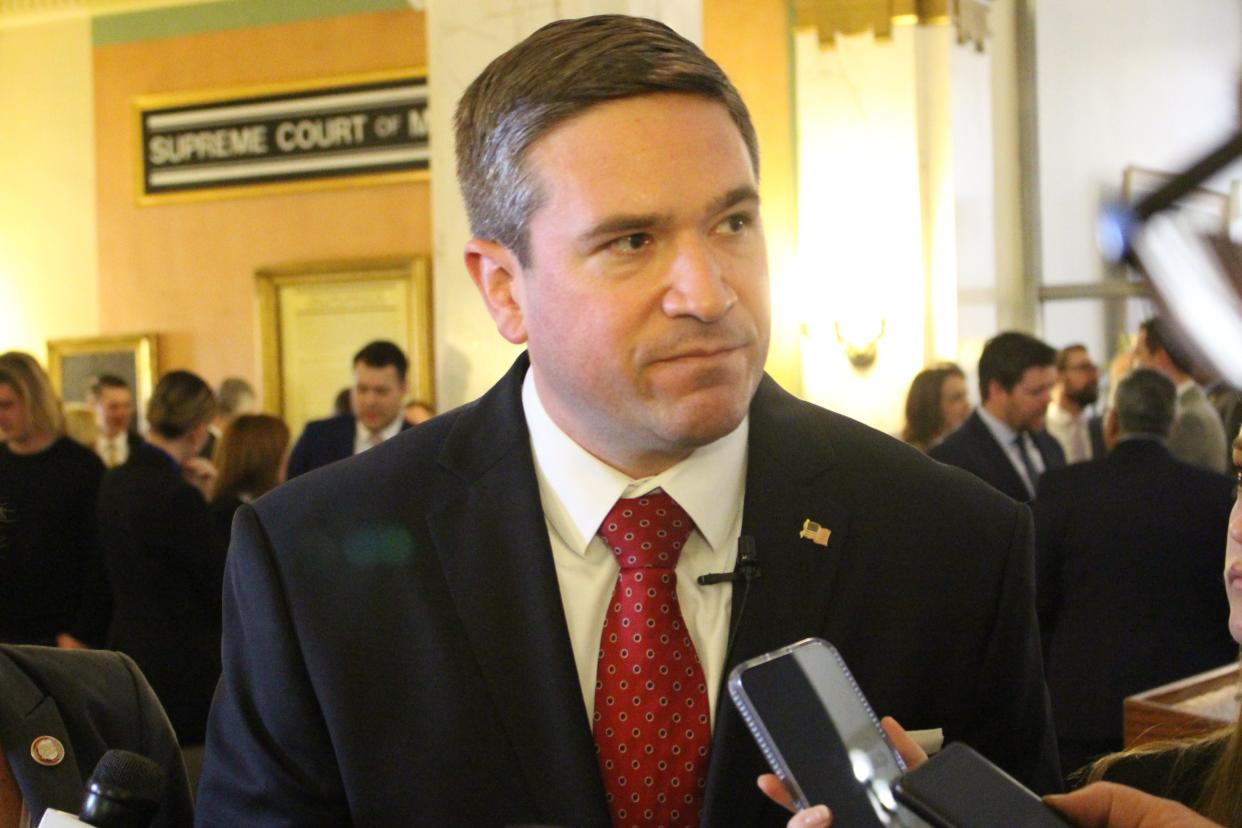Missouri Attorney General's emergency rule appears to halt all 'experimental' trans care

After announcing his intent to file an emergency rule in late March, Missouri's Attorney General Andrew Bailey has released the official language of the rule, which prohibits "experimental interventions to treat gender dysphoria" unless providers comply with a list of requirements.
If approved, the emergency rule would go into effect on April 27 and last until Feb. 6, 2024. This emergency ruling comes as the Missouri House voted to approve a bill that would ban gender-affirming care for minors.
While the attorney general's office has previously said this rule was limited to minors, the language of the rule appears to extend the prohibition to adults seeking gender-affirming care as well.
"This emergency rule is necessary to protect the public health, safety, and welfare, and also to protect a compelling governmental interest as the attorney general is charged with protecting consumers, including minors, from harm and investigating fraud and abuse in the state’s health care payment system," the rule says.
More: Missouri AG issues regulations on gender-affirming care for minors as legislature debates ban
On March 20, the attorney general's office had said "This emergency rule is focused on protecting children (minors)," in response to a News-Leader inquiry as to whether the emergency rule will impact adults seeking gender-affirming care.
The attorney general's office called the emergency rule "an effort to protect children" that is based on "dozens of scientific studies and reports" in response to "a clandestine network of clinics across the state who are harming children by ignoring the science.”
Missouri's LGBTQ advocacy organization PROMO said it will continue to fight for trans people, and condemned Bailey's actions.
“His actions today fanned the flames of hate by including transgender adults' ability to access care in his culture war," PROMO said in a press release. “Let’s be clear — gender-affirming care is based on decades of clinical experience and research and is not considered experimental. The Attorney General’s claims are maliciously cherry-picked and come from unverified sources that allow him to promulgate disgusting, obstructive, and misleading information into an emergency rule. It should be clear to anyone paying attention that the real threat to Missourians is the Attorney General himself."
Lambda Legal and the American Civil Liberties Union of Missouri released a statement promising to take "any necessary legal action against Attorney General Andrew Bailey’s emergency regulation restricting access to gender-affirming care."
What is included in the rule?
The rule defines "gender transition intervention" as prescription or provision of any puberty-blocking drugs, cross-sex hormones or surgery for the purpose of transitioning gender, decreasing gender incongruence or treating gender dysphoria.
In order for providers to offer gender-affirming care, they must:
Assess at least annually whether the patient has gender dysphoria;
Disclose a list of information potential negative side effects and information about gender dysphoria;
Perform a full psychological/psychiatric assessment, including at least 15 hourly sessions over the span of at least 18 months, to identify whether the patient has any other mental health comorbidities;
Treat and resolve existing mental health comorbidities;
Track all adverse effects from any course of covered gender-affirming procedures for at least 15 years from the start of the intervention;
Obtain and keep on file informed written consent;
Ensure that the patient has a comprehensive screening to determine whether or not they have autism;
Ensure at least annually that the patient's gender identity is not the result of a "social contagion;"
Ensure at least annually that minor patients are screened for "social media addiction or compulsion;"
Those already receiving care may not be affected by rule
The rule appears to make an exception for those who are already receiving gender affirming care, as long as "the person or health organization promptly seeks to initiate" treatments and assessments outlined in the rule, including documentation of gender dysphoria for at least three years and a full psychological assessment consisting of no less than 15 sessions over no less than 18 months.
Other exceptions to the prohibitions on gender-affirming care include those with sex development disorder or those seeking treatment for precocious puberty.
Susan Szuch is the health and public policy reporter for the Springfield News-Leader. Follow her on Twitter @szuchsm. Story idea? Email her at sszuch@gannett.com.
This article originally appeared on Springfield News-Leader: Missouri AG's emergency rule restricts care for trans kids, adults

